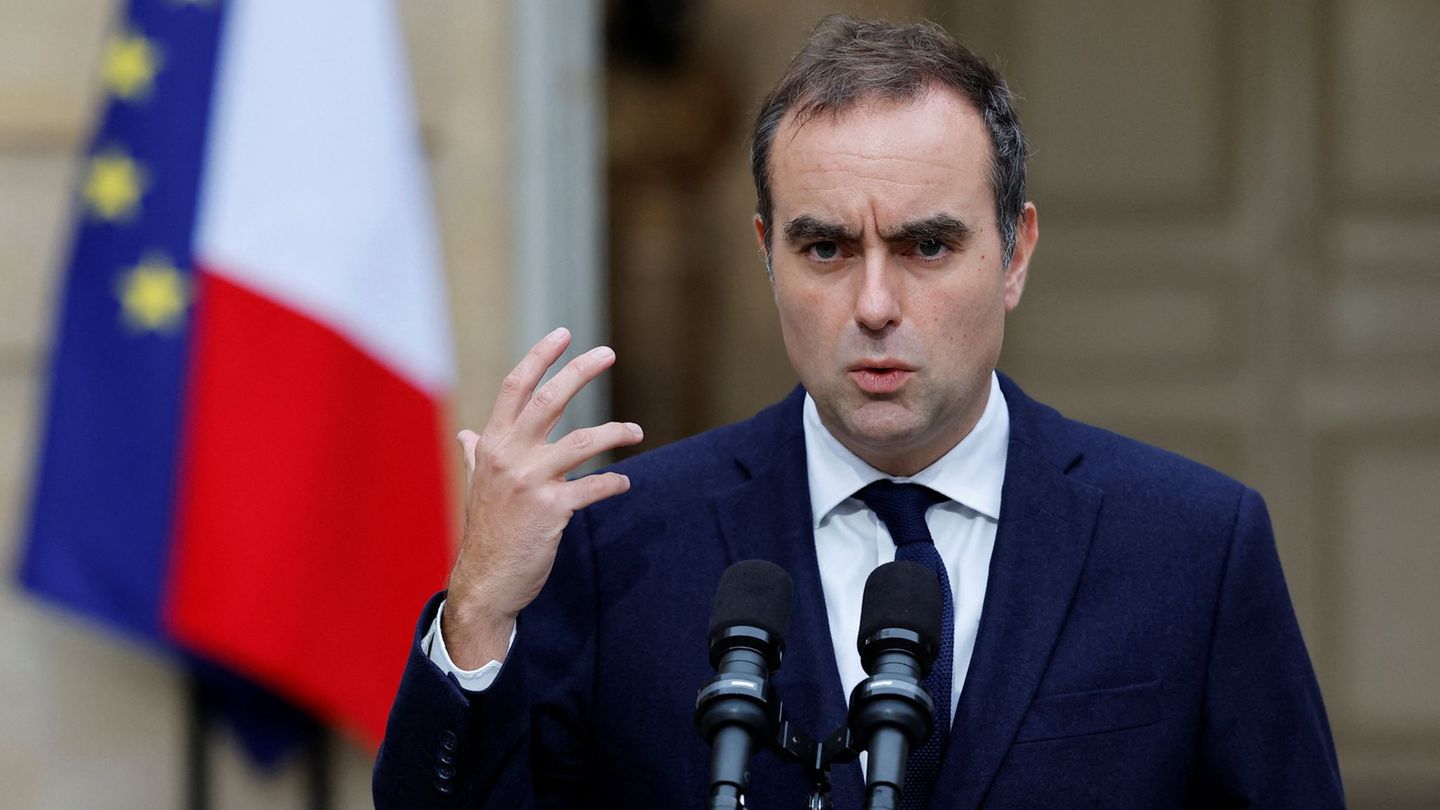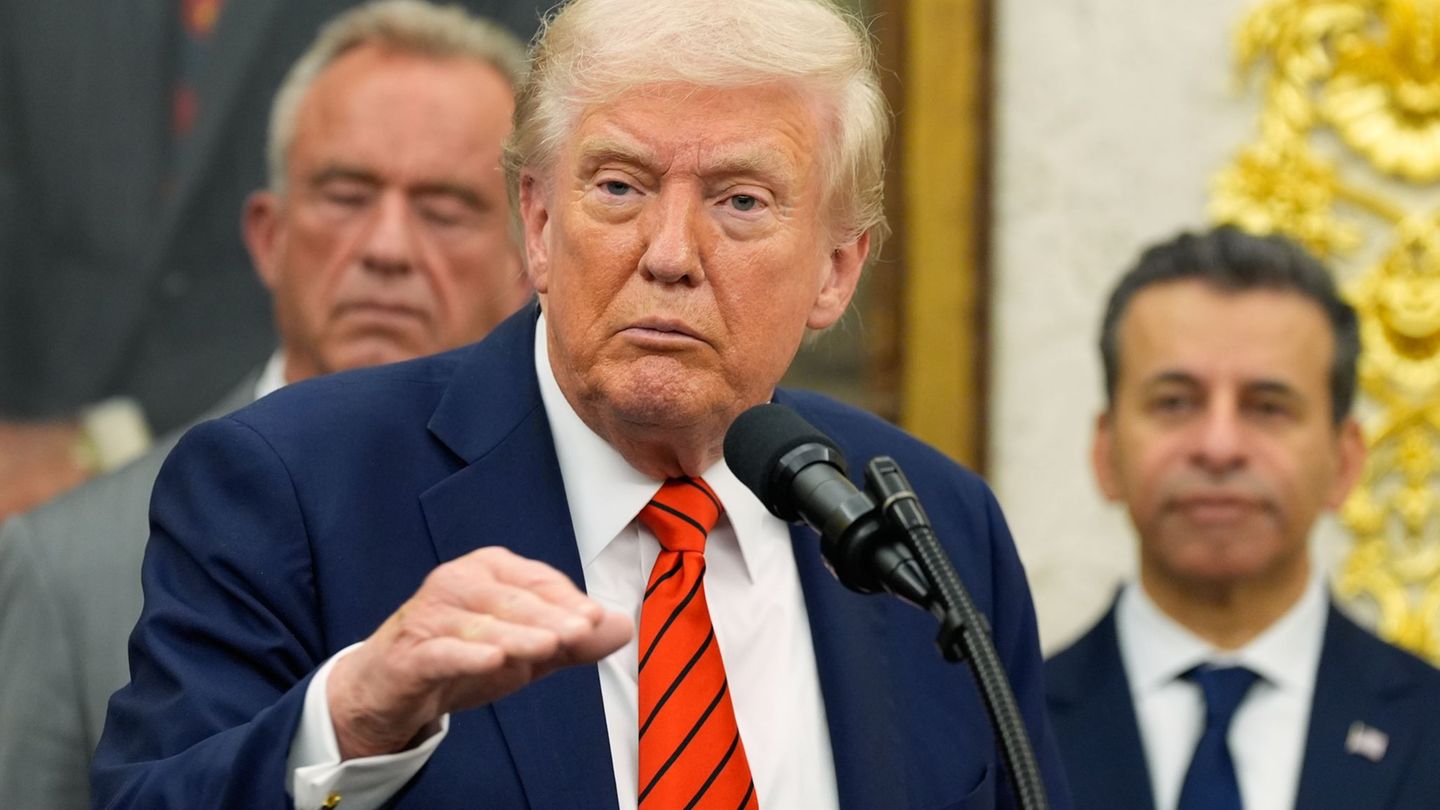Will France continue to rely on liberal President Emmanuel Macron and close cooperation with Brussels and Berlin? Or will other tones soon be heard with right-wing Marine Le Pen? Polls see a favorite.
After the success of the liberal head of state Emmanuel Macron and the right-wing Marine Le Pen in the first round of the presidential election, France is facing a landmark decision.
According to figures from the Interior Ministry on Monday night, Macron came from 97 percent of the votes to 27.6 percent. Le Pen from the Rassemblement National came in second with 23.4 percent. Both entered the run-off election on April 24th, the other ten candidates are out.
On the evening of the election, polls predicted a rather tight outcome for this runoff. The renowned institute Ipsos-Sopra Steria saw Macron as the winner with 54 percent of the votes. At the Ifop-Fiducial institute, however, Macron’s expected lead of 51 percent of the votes is extremely small. Again and again, a candidate who had finished second in the first round won the runoff. Accordingly, the head of state warned: “Let’s not make a mistake, nothing has been decided.” Macron added: “I am determined and very aware of what is at stake: the next two weeks will be crucial for our country.”
Macron travels to the Northeast
The 44-year-old Macron, who has so far been barely visible in the election campaign, traveled to Denain in north-eastern France on Monday, probably in an effort to get closer to the citizens. The majority of voters in the poor city voted for his competitor Le Pen on Sunday. The left-wing politician and national third-placed Jean-Luc Mélenchon also landed here ahead of Macron.
The runoff between Macron and Le Pen is a repeat of their duel from 2017. At that time, the political young star clearly lost to the right. “What is at stake on April 24 is not a choice of circumstances, but a choice for society, a choice for civilization,” Le Pen said on Sunday evening. Two opposing visions for the future prevailed.
Macron, who wanted to put a stop to the right, admitted: “When the right-wing extremist in all its forms has so much support in the country, one cannot say that things are going well.”
A victory for the 53-year-old Le Pen would be a shock with momentous consequences for Germany and Europe. Le Pen questions the decades of close cooperation with Berlin and is more interested in cooperation with other Eurosceptics such as the governments in Budapest or Warsaw. In the European Union, France could change from being a driver to a brakeman under her, in a very different way than under the pro-European Macron. In the current escalating crisis between the West and Russia, Europe and the US, along with Le Pen, fear that the solid pro-Ukraine front will crumble.
Another “wall” against the right forms
In France, too, there are fears that Le Pen will move into the Élysée Palace. The calls for support for Macron began shortly after the first projections. While the Greens, Socialist and Republican candidates clearly called on their supporters to vote for Macron in the runoff, leftist and third-place finisher Mélenchon merely urged not to vote for Le Pen, and was nonetheless more vocal than five years ago years. The formation of a new “wall” against the right seems to be in progress.
Le Pen, on the other hand, would have to mobilize significantly against Macron to win. She can count on supporters of Zemmour and votes from some right-wing conservatives, but hardly from the center-left camp, which she has already tried to approach with calls for social justice after the election. Here it would probably help her above all if leftists, frustrated by Macron, simply stayed away from the election and thus drove up their percentages.
Le Pen, who is running for the third time, tried to be more moderate during the election campaign. At the same time, she portrayed herself as an advocate for those suffering from inflation and rising prices for electricity, fuel and food. Unlike Macron, she has been personally campaigning in numerous cities for months.
Macron focused on economic progress in the election campaign. In 2017 he made it into the Élysée Palace with his movement La République en Marche. The once more left-wing candidate now represents more liberal-conservative positions. He capitalized on the weaknesses of other candidates, a desire for stability amid the Ukraine war, and some successes as president.
The French head of state has far-reaching powers and holds office for five years. Around 48.7 million French people were registered to vote. According to an estimate by the polling institute Ipsos, voter turnout was 74.0 percent shortly after the polling stations closed.
Source: Stern
David William is a talented author who has made a name for himself in the world of writing. He is a professional author who writes on a wide range of topics, from general interest to opinion news. David is currently working as a writer at 24 hours worlds where he brings his unique perspective and in-depth research to his articles, making them both informative and engaging.




